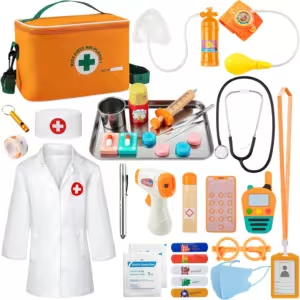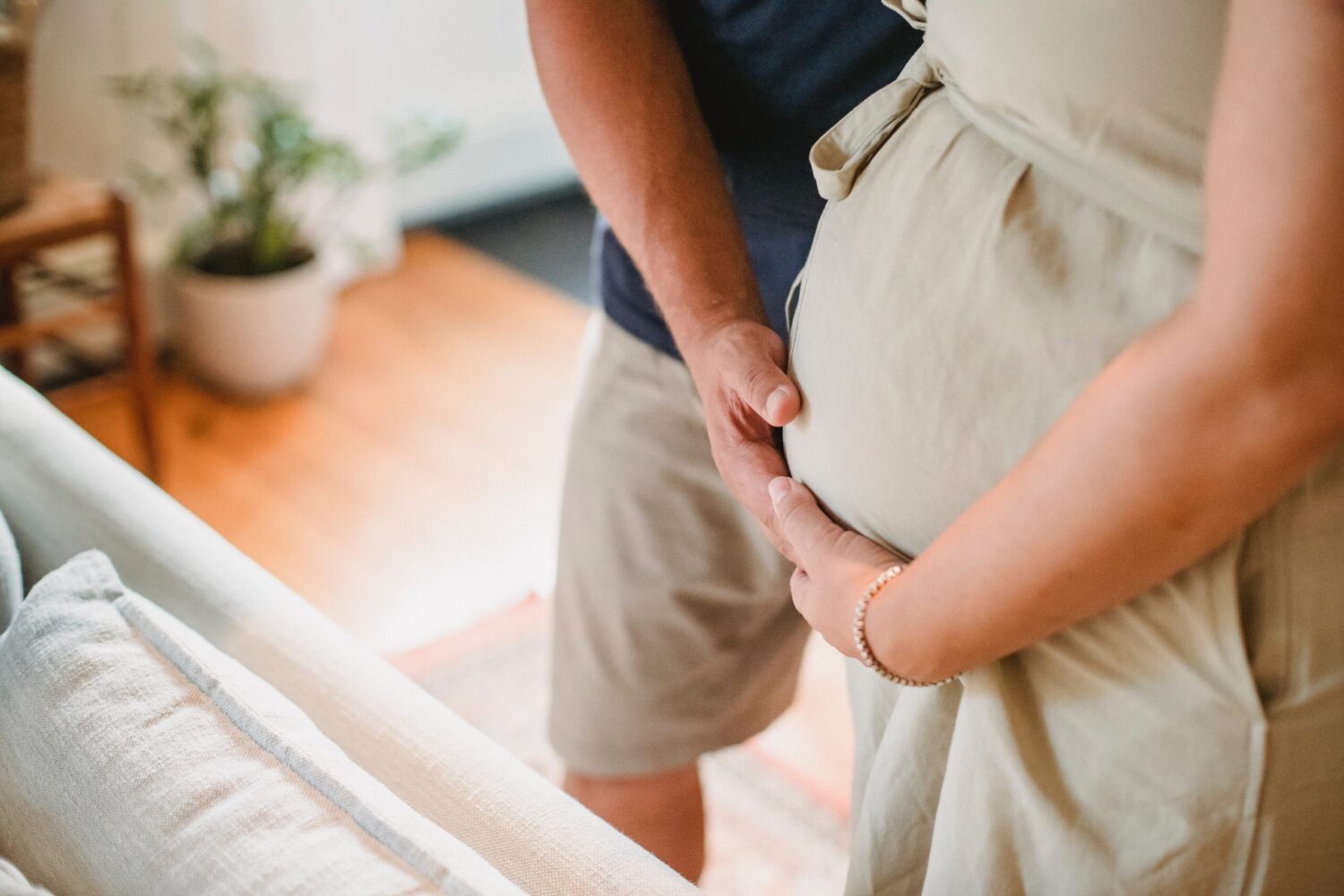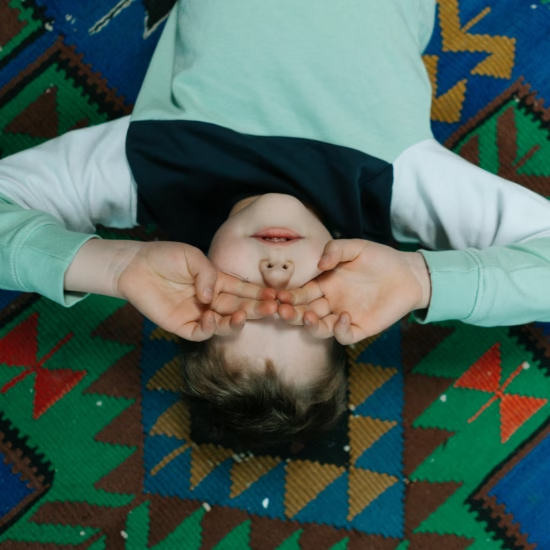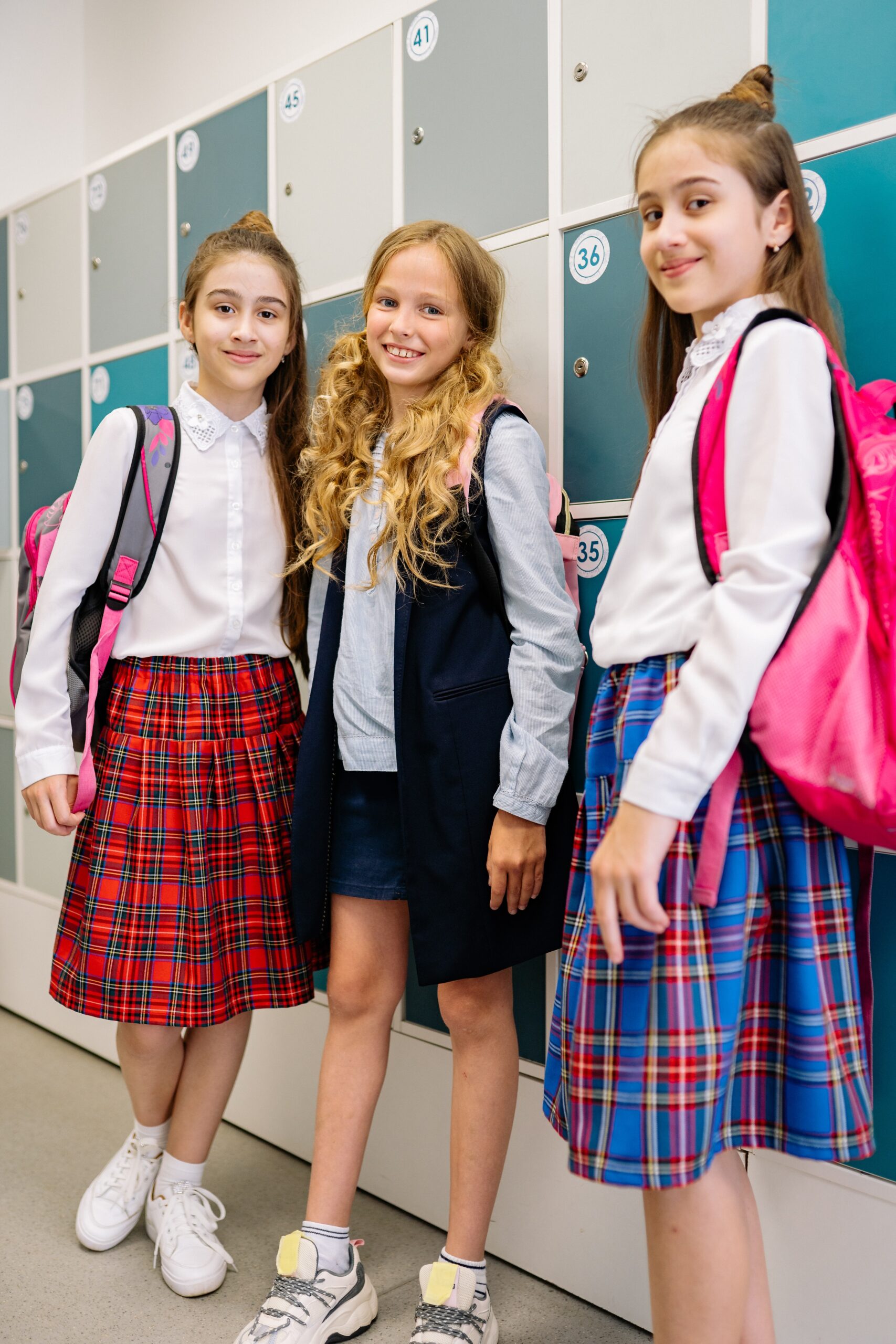This article is part of an ongoing series about helping your autistic twins adjust to different seasons. Read more about helping your autistic twins, triplets or quadruplets to be happy and settled through spring, summer, fall and winter. In the Northern Hemisphere, fall is September, October and November. Fall is known as a time when leaves change, clocks go back, and we may start to spend more time indoors as the weather gets colder and wetter outside.
Help them choose the right clothing
As the temperature begins to cool down, it’s time to think about getting the right clothing out for your autistic twins. Put away the shorts and bathing suits and dig out the long sleeve tops, jeans and sweaters. To encourage independence, let your twins pick their own outfits. If you are really concerned about what they might choose, narrow it down to two choices that they can choose between.
Although it is very cute to see twins dressed alike, sensory challenges may mean they have different preferences – one may like tighter clothing like leggings or sports tops, while the other may like looser and comfortable cotton clothing. Help them understand what they like best and give them plenty of opportunities to practice dressing themselves.
Raincoats and boots are important too, and may be challenging due to fabrics, feelings or the noises they make. Again due to sensory preferences, one twin might light a puffy coat, while the other prefers a lighter raincoat. Will your twins tolerate a hood? Would they prefer rubber Wellington boots, or leather boots to keep their feet warm and dry? It may be a good idea to have them try choices out before the weather changes to get them used to wearing different shoes.
Regulating (and recognizing) body temperature
Many autistic people have challenges with interoception, meaning they struggle to recognize and interpret bodily signals such as hunger, thirst, toilet or temperature. You may wonder about this if you notice that one twin doesn’t seem to notice the temperature and will always prefer to wear shorts or be barefoot.
For people without interoception issues, it may be difficult to understand. But let’s break it down. Imagine your autistic twins don’t want to wear boots, so they end up with wet tennis shoes. This is a complicated series of tasks when you break it down – they have to feel the sensation of wet feet, identify what physical state that relates to in their body, mobilize to take an action such as take their wet shoes off, and the body can then return to a state of regulation and away from discomfort. No wonder it can be quite difficult! You can help them by talking about sensations such as cold, wet, damp or dry as you go about the day.
Changing clocks
Around 70 countries globally change their clocks twice per year! This means depending on where you live, your clocks might go back one hour this fall. This is because as the Earth rotates, we get less sunlight and longer periods of darkness. Although this sounds good in theory, a change in schedule can be difficult for your autistic twins.
You may want to start changing your clocks early, or adjusting bedtimes/mealtimes in advance of the change, to give them extra time to get ready. If your twins share a bedroom, you may need to separate them for a little while if one is struggling to adjust. You may also want to watch your scheduling and not plan too many activities during this time, as everyone gets adjusted.
Sensory challenges in the fall
Each season has its own sensory challenges. In the fall, your twins may not like the feeling of wet clothing. They may find wind or rain storms loud and frightening. There may be smells from bonfires, fireworks, or baked goods they are not used to. Try using social stories or PECS cards to help your twins get used to the changes.
There is often a link reported between barometric (air pressure) changes and autistic behavior, with some people being more irritated or impulsive during sharp pressure changes. I have ADHD and get terrible migraines from air pressure changes. Try watching your twins behavior and if you notice they seem to be more unsettled during barometric changes, you might try using deep pressure or other proprioceptive seeking techniques to help them feel more regulated.
Getting sick
Fall is a time when we get sick more, including our twins. Going back to school means we are around new people and new germs. Hand washing may be difficult for your twins due to sensory or fine motor skills challenges so you may need to take extra efforts to help them wash their hands. It took me a very long time to teach my son how to blow his nose, again with interoception and other challenges, your autistic twins may need more support until they are able to do this independently. Use PECS or social stories to explain what being sick might feel like, how they can help themselves and when they might feel better.

Going to the doctor or taking medicine might seem scary for your autistic twins. You can practice doctor visits at home when they are well – the doctor’s play kit is great for social skill learning too. Ask the twins to take turns opening their mouth wide to see their throat or take their temperature. Speak to your pharmacist to see if prescription medication is available in liquid or different flavors. You may also be able to mix liquid medicine in a wet food such as yogurt or applesauce.
Fall holiday excitement
Depending on where you live there might be lots of exciting activities going on. As we know, change can be hard. From harvest festival, to Dia de Muertos, to Diwali, to Halloween and Thanksgiving, these special events might be too much. Explain what happens to your autistic triplets during holidays before the big day arrives. Give your twins the option to participate in festivities if they would like to, but also remember it is ok to just stay home and stick with your routine instead. You know your family best!
What are your top tips to help autistic twins this fall? Share in the comments below. Be sure to subscribe for the latest news and updates!
This website uses affiliate links. We may make a small commission from purchases when you use these links, at no additional cost to you. As an Amazon Associate we earn from qualifying purchases.




